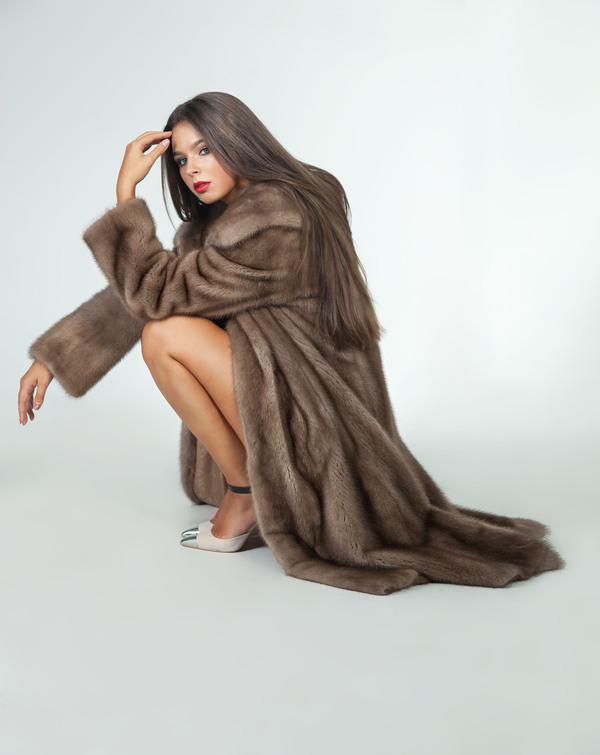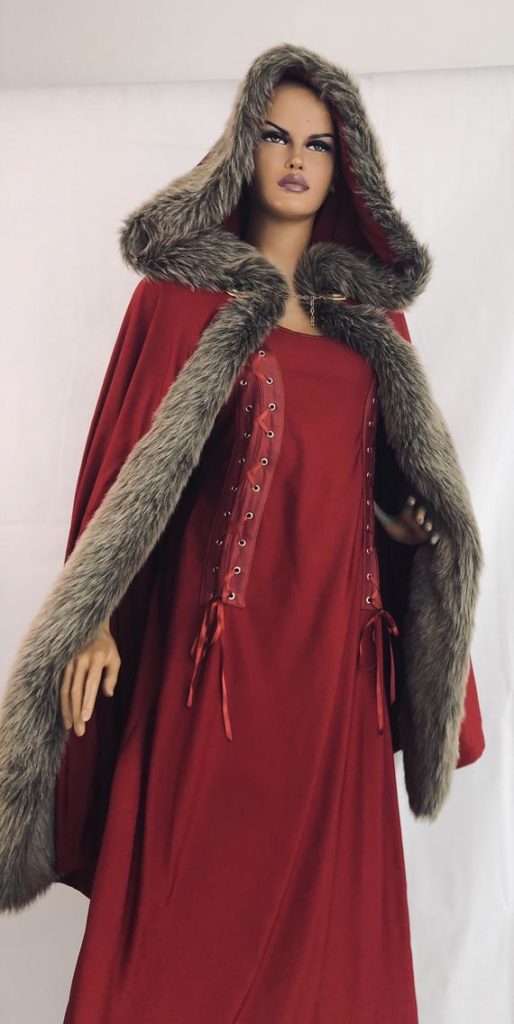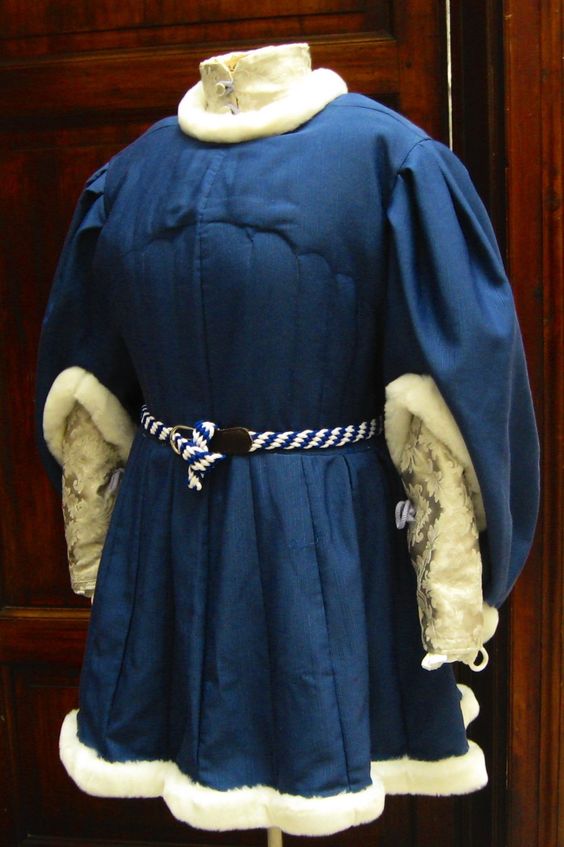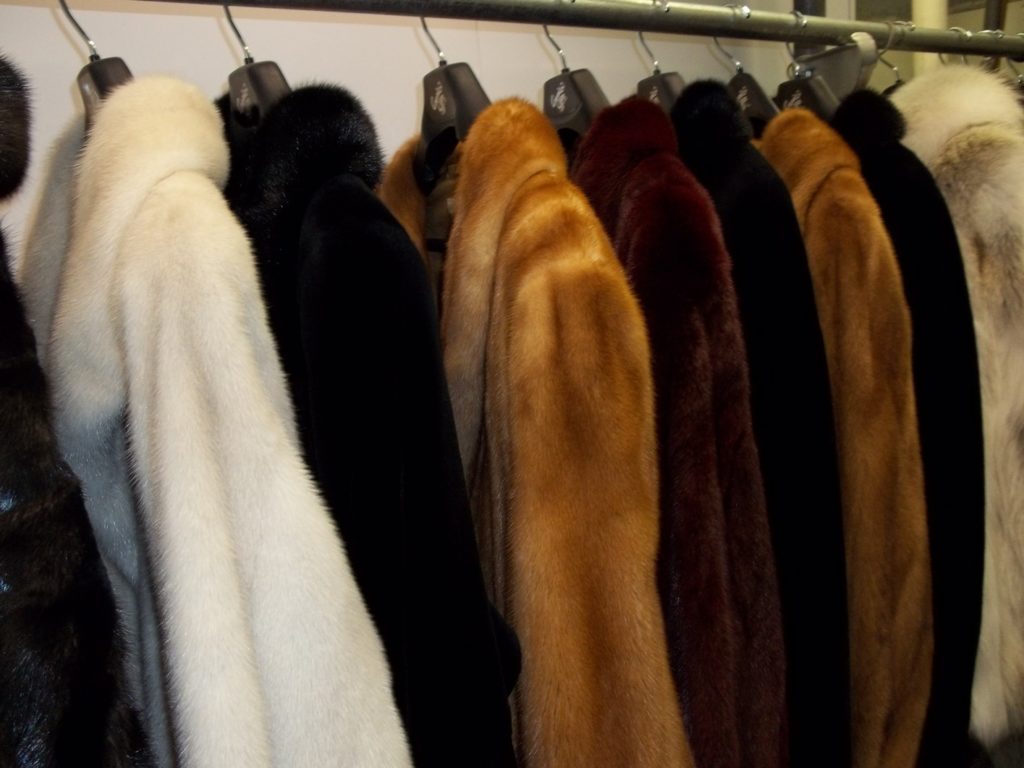Nowadays, the use of synthetic materials for sewing outerwear is becoming increasingly popular. However, the production of natural fur coats is not in danger of collapse and falling demand. Fur products are considered not just a fashionable attribute of a stylish woman. They protect against winter cold, which in our country lasts for several months.

@freedesignfile.com
Early cave dwellers used animal skins as blankets. It is also known for certain that already in the first century BC, Roman legionnaires covered themselves with the skins of lions, and the inhabitants of the northern territories covered themselves with the skins of bears.
However, the ancient Celts are considered the ancestors of fur coats. They were the first to think of making a cape out of skin that looked like a modern tunic. It covered almost the entire body and reliably protected from the cold.

@etsy.com
The ancient Chinese wore fur coats made from goat and monkey skins. These were not just capes, but full-fledged clothes with sleeves. It is noteworthy that the word “fur coat” is Arabic, in this language it sounds like “jubba”.
In Rus', tailoring outerwear was a special matter.The animal, living in the forests adjacent to ancient Russian settlements, has always been famous for its particularly fluffy and warm fur. That's why the fur coats were rich. If simple peasants sewed short fur coats from hare skins (but even such clothing was not available to everyone), then wealthy residents of Old Russian cities wore products from fox, mustel or sable skins.
By the way! For a long time, fur coats were worn with the fur inside. It was believed that it warms better this way.
Europeans also wore fur products. They never dreamed of frosts like ours, but no one canceled their desire to dress beautifully. In the Middle Ages, the upeland was popular - a dress with wide sleeves that was worn over the head. To insulate it and make it look more luxurious, the upeland was supplemented with natural fur. A little later, Europeans fell in love with fur so much that they began to decorate clothes with it that were completely unintended for this purpose. So, on a hot summer evening, ladies in dresses with fur inserts were walking on the streets.

@tolmancotton.deviantart.com
At the beginning of the twentieth century, long straight-cut fur coats were popular. They were sewn from chinchilla fur, sometimes from mink or fox. During the war years there was no time for luxury, so outerwear was made from what was easy to get. Goat and hare skins were used. The cut of such products was as simple as possible: a straight silhouette and buttons along the entire length.
The love for luxury awoke closer to the 60s. At that time, long-haired fur came into fashion.
Today you can find a product for every taste and budget. Different furs are used for sewing. Among the budget ones, but not of high quality, we can note products made from rabbit, nutria, ferret, and muskrat. Middle price segment - fur of mink, raccoon, chinchilla, arctic fox, marten, sable. Products made from lynx and ocelot are considered expensive and exclusive.There are also very extravagant options made from leopard and jaguar skins. Their price is prohibitive, most often these are handmade products.

@ceresnieandoffenfurs.com
Buying a quality fur product is a difficult task. You can’t just try it on; you need to check the quality of the skin, lining and seams. Thus, good fur is always pleasant to the touch; the hairs quickly return to their original shape if you run your palm against the grain.
The reliability of staining is checked with a white napkin. It is enough to run it over the fur and evaluate the result. The napkin should not become stained.
In a high-quality fur coat, the lining at the bottom and along the sleeves is not sewn to the skins. Conscientious manufacturers do this on purpose so that the buyer can evaluate the quality of the skin (the underside of the skin). In addition, it is important to pay attention to sewing: small threads, puffs and uneven seams are unacceptable.